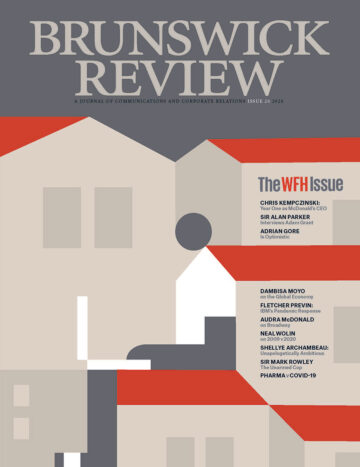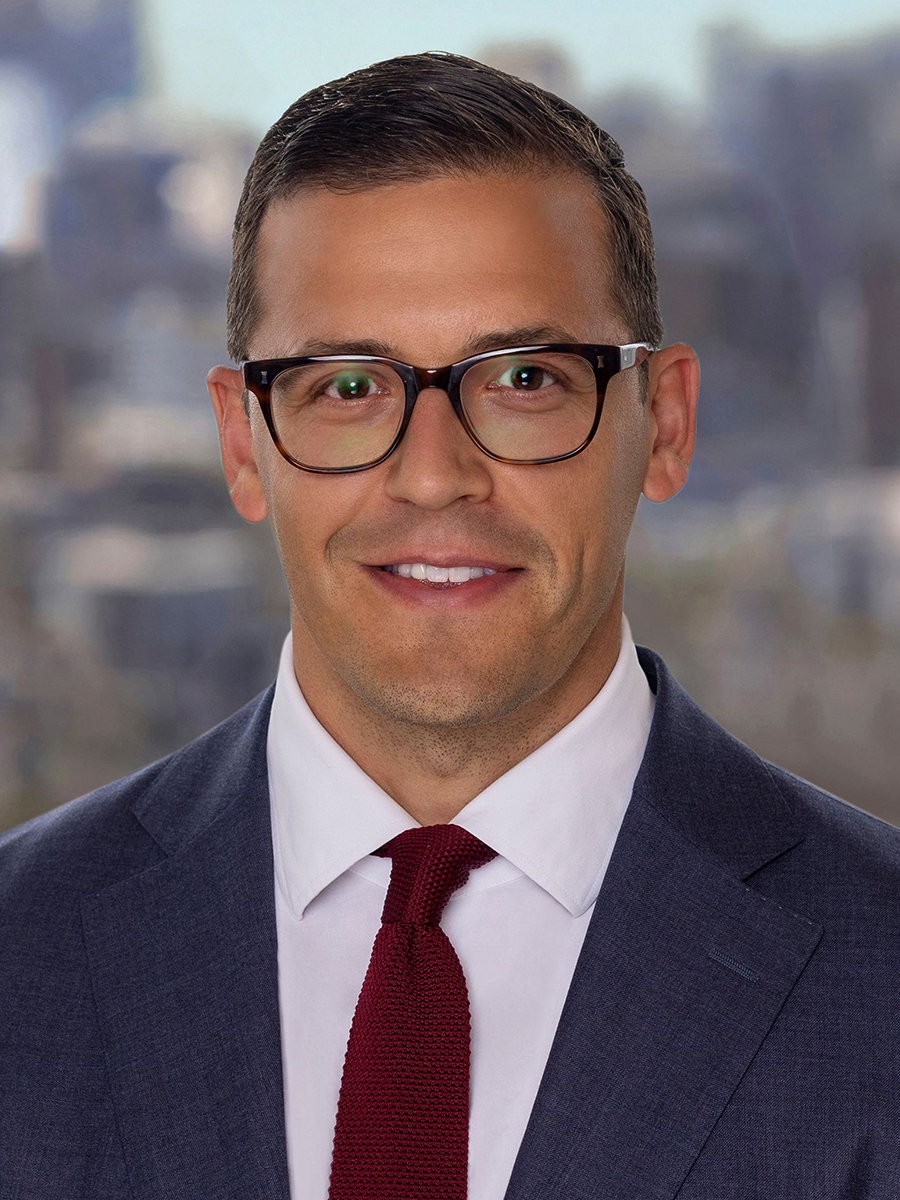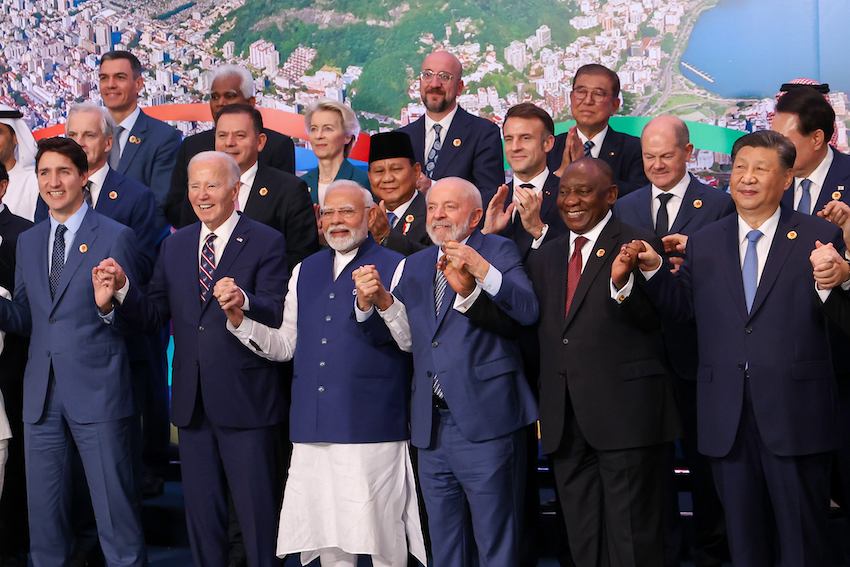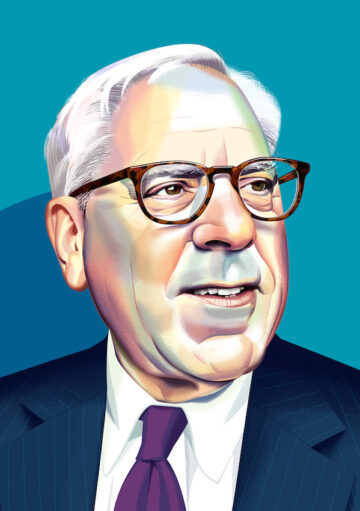Shellye Archambeau was one of Silicon Valley’s first African American female CEOs. She spoke with us about her new book, the Business Roundtable’s effects inside the boardroom and why she “detests” work-life balance.
Perhaps the most memorable line from the recent US vice presidential debate—or certainly the only one to since appear on T-shirts, mugs, and hoodies—was delivered by Senator Kamala Harris, the first woman of color from either party to appear on a presidential ticket. As she was being interrupted, Sen. Harris turned to her opponent and said, “Mr. Vice President, I’m speaking.” That moment was watched by 58 million people; that experience—being talked over by a man—was familiar to possibly a much larger audience: women in workplaces worldwide.
The day before the debate, Shellye Archambeau published Unapologetically Ambitious: Take Risks, Break Barriers, and Create Success on Your Own Terms, which recounts her journey as a woman of color through the notoriously male-dominated tech industry: From a secretary at IBM during college to a CEO in Silicon Valley by forty. In a recent virtual discussion organized by Stanford University, Ms. Archambeau remembered how as a young professional, one of her male colleagues had called her “sweetpea.” When it came her turn to speak, Ms. Archambeau paused, looked her colleague in the eye, then said, “My name is Shellye.”
Ms. Archambeau’s book marries life experiences with life lessons, many of which speak directly to those still being marginalized and discriminated against. “It is not your fault that things are harder for you, but you must not let it harden you,” Ms. Archambeau writes. “Don’t blame yourself, and don’t waste your energy blaming others. If you allow life’s injustices to define you, they will. But if you choose to define yourself, to believe in yourself and align yourself with others who believe in you, you will find a way to live the life you want.”
Among the book’s remarkable features is that Ms. Archambeau found time to write it. She sits on the boards of Verizon, Nordstrom, Okta, and Roper Technologies, and serves as an advisor to the Royal Bank of Canada and Capital Markets Group. She spoke with the Review the day afterUnapologetically Ambitious’official publication.
Former Google CEO Eric Schmidt said Unapologetically Ambitious was “the book he wished he’d read in his twenties.” Was that the reader you wrote this for: young professionals?
Yes, I was trying to reach the young professional who is trying to figure out all of it, you know, typically in their 20s and 30s. That’s when you make so many decisions that have an outsized influence on the rest of your life, not just your career. Just look at what happens between 25 and 35: In that one decade most people choose where they’re going to live, who their life partner will be, the industry they’re in, whether they’re having children …
And I wanted to share my experiences, and my belief, that you can impact how life happens if you’re intentional about what you do. Because I’ve just seen so many people wake up in their late 30s, in their mid-40s, in their early 50s, and they’re like, “This isn’t where I thought I would be. What happened?” And what happened was life happened.
That message comes through so powerfully in the book: Be intentional. Plan. Make choices. And yet in a pandemic, thinking of the future leaves a lot of people anxious or worried, hence the calls to cultivate some form of surrender, acceptance—to let go of our plans.
I totally don’t agree.
The pandemic hasn’t shifted your stance?
Not at all. If anything, I think when chaos is happening around you, which let’s just put everything that’s happening as chaos, it’s even more important to figure out your focus. If you’re a dancer, one of the things that you learn is when you do turns and spins, you have to have a focal point.
You can’t let your eyes go with you as you go all the way around. You need to have a focal point, and that keeps you steady every time you spin. Well, the world is spinning right now. And if we just take our eye off the focal point and we just follow it … oh, my God. I get dizzy thinking about it.
It’s so important to focus on: “What can you actually control?” And you know what? There are a lot of things that you can control. I don’t care if what you can control is so simple as, “What am I going to eat tonight? How am I going to exercise?”
I find focusing on what I can control—even if it’s not major things in life—to be much more calming than letting the world figure out what the heck happens next. To me that’s much more scary. So this notion of, “Let it all go and just see what happens,” I don’t understand that at all. I mean, the dancers end up on the floor if you drop that focal point. If anything, in times of chaos, when things are just spinning, it’s really important to remember: “OK, what are my priorities, what am I focused on, what can I control?”
Now, there’s going to be some things that you can’t control now that you could have prior to the pandemic. OK, let them go. Worrying is just going to take extra brain power. So let those things go and focus on: “Now, what can I control? And let me make sure that those things are going as well as they can.”
“Race was so taboo in the United States that it wasn’t even one of the three things that you didn’t talk about in polite company: religion, sex and politics. Race wasn’t even on the list, it was so underground. OK? And now, we can talk about it.“
Another point you stress is to not seek “work-life balance”—
Right. I cannot stand “work-life balance.” I detest that term.
Why?
Because what is a balance? I mean, close your eyes and picture it. It’s a metal structure with a bar across the top. It holds two weights and they’re even at all times. That’s balance. It’s static. But here’s the problem: Life isn’t.
So if this is now how we’re going to be judged, doing a great job with work-life balance when you are even at all times—please. It was put in place for all of us to feel guilty, I’m just convinced of it, because no one has balance. The whole premise and the expectation is just flawed. There are enough things in life to make us feel guilty and inadequate. We don’t need that term, too.
Instead, you advocate “work-life integration.” For many people, the pandemic has forced that in a very literal sense—and it hasn’t been easy. What’s your recipe for making it work?
Look, it’s hard. I have no magic wand that says, “You do this and it’s all easy.” It’s not. It’s hard. But you know what? Life is hard. So realize as you’re struggling and you’re finding it hard that so are a lot of people. So you’re in really good company. It’s not you. Don’t think that you are failing because it is so hard. It’s hard for everyone.
Now, let’s look at what can you control. If you’re married and have young kids, it’s particularly tough. They’ve got Zoom classes. You have to sit with them and you’re trying to get work done, too.
Try to make the best of it. Figure out the structure that you can provide, the expectations you can set your kids. We set expectations at work all the time. Our kids are really smart; you would be surprised, even at very young ages, how you can set expectations. Maybe you say, “From this time to this time, you’re on your iPad and Mom’s on her computer.” Right? “OK, we’re going to sit here together. You’re going to do this, I’m going to do this. You have three chances to ask me questions, all right?” And when they say, “OK, well, can I …?” you can go, “Yep, absolutely, let’s get our paper. That’s number one. Right? You have two more.”
Because if we don’t bring that same kind of structure to our lives as we do our work, then it’s just chaos for everybody. I’m not trying to make light of it. It is hard. But there are things that we can do and tools that we can use at home, just as we do at work, to bring structure and make it a little bit more predictable.
It feels much longer, but it was only a little over a year ago that the Business Roundtable came out with its statement on corporate purpose. Did that change how you view your role or responsibility as a director?
It’s interesting, because it didn’t change my personal view. I always felt the best companies are companies that deliver consistently good returns to shareholders, treat their employees right and are good corporate citizens. I just believe those all go hand in hand: You’re a good corporate citizen, so employees want to work for you. And therefore you end up with good employees and you’re able to generate better returns.
But it absolutely did, I think, impact conversations broadly, right, in the boardroom and in companies in general. And I’m thrilled that it actually came to fore.
“I cannot stand ‘work-life balance.’ I detest that term… Because what is a balance? I mean, close your eyes and picture it. It’s a metal structure with a bar across the top. It holds two weights and they’re even at all times. That’s balance. It’s static. But here’s the problem: Life isn’t.“
We read all the time about the powerful business case to be made for advancing racial equity. And yet judging by their actions, business leaders—often caricatured as pursuing profits and financial returns above anything else—seem OK leaving these on the table. You’ve been a CEO; you sit on four boards. How do you make sense of this contradiction?
Whenever you’re developing a new muscle, it’s uncomfortable. If you’re a runner and you suddenly decide you want to take up boxing, well, you know what?, when you take your first few lessons, you’re not good. It’s not comfortable. You haven’t been developing those muscles in your arms and chest. And the legs, suddenly, you don’t need long lean muscles, you need tight, bulky ones to get the power in. You’re impulse is: “Forget it, I’m going to go back to running. I can get the same results, stay healthy, stay in shape.”
I see it the same way in business. Why do they leave those returns on the table? They don’t have that muscle. They know how to do what they’ve been doing. And they can get good enough returns that way. And until now, people weren’t pushing them to go get that extra return.
It’s really as simple as that. We are creatures of habit. Developing new habits, developing new muscles, those take intention. And frankly, we’re just not intentional enough across the board. Some companies are. And as a result, you actually see real difference.
You’ve said before you’re “cautiously optimistic,” to use your metaphor, about more companies building that muscle. Why the hesitation?
I’ll come back to the “caution” in a minute, but I’m optimistic because of three things. One: For the first time in my lifetime, we are talking about race.
I mean, race was so taboo in the United States that it wasn’t even one of the three things that you didn’t talk about in polite company: religion, sex and politics. Race wasn’t even on the list, it was so underground. OK? And now, we can talk about it. And more than that, it’s actually encouraged.
That leads to my second reason: people are hearing for the very first time, experiences and perspectives that I don’t think they ever had, which helps drive empathy and understanding. And you also have people stepping up to say, “All people should actually be treated equally. I thought that was the case. And now I see it’s not. But everybody should.” And the people who are standing up represent the demographic of the entire country.
And then, three: Even during civil rights, very, very few businesses actually stepped in. It was a government issue. It was not a business issue. Well, this time, business is stepping in. And they’re saying, “How our employees are treated, whether they feel safe, whether they can live—that matters to us. And we’re going to play a role.”
Those three things are what give me optimism around what’s different. The reason I use “cautious” is because we’re a fickle society. We tend to pick big things to focus on and then we get tired and we move to the next thing. And this one, it’s taken us 400 years to get here. And it’s not going to be fixed in 12 months. So the question is and the caution is, “Are we actually going to have the fortitude to just keep working at it?”
You know, it goes back to that muscle. A lot of people go out and do something once or twice. They come back, they’re sore, and they say, “OK, I’m not doing that anymore.” It’s over. Right now, we’re at the point where muscles are getting sore, people are getting tired.
If you were able to get every Fortune 500 CEO on a Zoom call, what do you think they need to hear right now?
A lot of studies I read say one of the top problems that CEOs feel they have is talent. A lack of it. And I don’t believe we actually have a talent problem, not a raw talent problem. We have a problem identifying and developing talent across the board.
Because talent is evenly distributed—by geography, ethnicity, age, gender, however you want to look at it. It makes no sense to me that we should have a talent shortage. We need to think about it differently: “How do we do a better job of identifying talent and developing talent?” Because there’s plenty of it out there.
Unapologetically Ambitious: An Excerpt from Shellye Archambeau’s new book.

As an African American woman in my fifties, I don’t exactly fit the prototype for a tech industry business leader. I can’t tell you how many times people—especially women and people of color—have asked me this question: How did you get where you are?
Before I answer the question, let me tell you a bit about where I started. In 1962, I was born into a family of modest means and high ambitions. This was not long after lunch counter sit-ins called national attention to segregation, and not long before Martin Luther King Jr. delivered his “I Have A Dream” speech at the March on Washington.
During the first five years of my life, the Civil Rights Act passed, peaceful demonstrators met brutality on the Edmund Pettus Bridge in Selma, Alabama, the Voting Rights Act banned practices that limited voter rights, and racial tensions soared. In this environment, my determined parents set out to make a life for our family, following opportunity wherever it took us.
As for me, I started as a shy, gangly black girl in an all-white elementary school, and I grew into a successful high school student and a graduate of the Wharton School. I met a wonderful man to share my life with, and together we raised a family. After a fast-paced rise through the ranks at IBM, I become one of the very (very) few female African American CEOs in the technology sector, all the way back in 2003, when I was forty years old. As CEO of Zaplet, I orchestrated a merger with MetricStream, guided our combined company through the choppy waters of the dot-com bust and the financial crisis of 2008, and came out of the other end an industry leader, employing over a thousand people. Along the way, I have mentored countless young professionals, and I have been involved in organizations that do a lot of good—especially for minorities and women.
How did I get here? That’s what this book is all about—the values, experiences, lessons, ideas, strategies, and actions that got me where I am today. If I had to sum it up, though, I would say ambition got me here—ambition supported by the conscious choices I made every step of the way.
Success begins with figuring out what you want, then making the choices that will get you there. You’ll notice I use that word a lot: choices.
Early on, my parents set me on the right track by teaching me the foundational life skills and lessons that would help me survive in a world hostile to young black girls like me.
In addition to choices, you may notice I use another word a lot: plan.
That’s right. I’m a planner. Big time. In fact, some might say I’m a little over the top when it comes to strategizing my life. But honestly, as a business leader and mentor, I’m surprised how many people—smart, talented, creative people—don’t have a plan in place to help them reach their goals.
I know people who have taken the opportunities they found right in front of them, instead of strategizing to create their own options. I’ve watched people make easy choices that don’t truly serve their long-term goals. I’ve met people who once had an idea—a far-fetched dream—of what they wanted, but they never formalized that dream into a goal or figured out a plan to get there. These are the folks who wake up in midlife, wondering how they ended up so far away from where they’d hoped they would be.
All too often, I meet people who don’t think about the long term at all. If you don’t have goals, how will you reach them? If you have goals but no plan, how will you know if you’re on track.
The good news is: It’s never too early to plan. And the better news is: It’s never too late. At any point in your life or career, you can set an objective, research the skills, experiences, or resources you need to go after it, and then map out a plan to achieve it.
Seriously.
I’m not the only person who has custom-built a happy, successful life. You can do it, too. This doesn’t mean you won’t face challenges, disappointments, and tragedies along the way. (Most of us do). It means that you can make life—and everything that comes with it—work for you.
Wait—are you wondering if this actually applies to you? If you can find success and happiness? Why is this a question so many of us ask ourselves—not “How can I get what I want?” but “Is this even possible for someone like me?”
Let me say, unequivocally, yes. Yes it is. Let me explain.
If you haven’t figured this out already, I’m an ambitious woman. Unapologetically so. When people ask me where my ambition comes from, well, it’s sort of like asking me where my legs came from. It grew with me; it’s part of my genetic code. Just as you can trace certain physical traits back through the generations of my family, so can you trace ambition.
My Aunt Dee, keeper of the family papers on my mother’s side, has a document that reminds me how far my family has come over the years. Yellowed parchment, faded brown ink—it’s called a deed of manumission, a handwritten letter penned by a slave owner, verifying the release of one of my ancestors from slavery. To read it, you would have no idea it referred to a human being. It could be a description of livestock—male, five feet nine inches, high forehead, long scar on his neck. Just a couple generations later, my great-grandfather, a proud and accomplished man whom everyone called Papa, was bringing my mother and her sister to lunch counter sit-ins, teaching them to take a stand for what’s right, and writing weekly letters to the editor of the local paper, speaking out against injustice.
On my father’s side, we have a family Bible, a heavy tome bound in blue cloth embossed with intricate gold lettering. Inside, it’s inscribed with the names and birthdates of ancestors, beginning with Dominique D’Archambau (a different spelling of my last name), a sea captain from France, who married a Jamaican woman named Maria Chaddenne who gave birth to Thomas Nicholas, in 1806, in Jamaica. That list of names leads right to my own grandchildren. Tracing my finger down the page, I imagine what life was like for each generation. I see how each name is like a rung on a ladder climbing toward greater and greater freedoms.
Yes, I see the challenges my ancestors faced. I also see their strength—the work ethic, pride, faith, and ambition that propelled them forward. That’s in my DNA.
As for you? No matter where you are starting, no matter where you or your family have been, you too have the strength to propel yourself forward. No two individuals want the same things out of life. We all know this in theory, but when it comes time to design our lives, sometimes we overlook that essential question: What do I want? Forget about achieving success as someone else defines it. What do you want?
By the end of this book, I hope you will both define what you want and feel empowered to go after it, unapologetically.
Excerpted from the book UNAPOLOGETICALLY AMBITIOUS: TAKE RISKS, BREAK BARRIERS, AND CREATE SUCCESS ON YOUR OWN TERMS by Shellye Archambeau. Copyright © 2020 by Shellye Archambeau. Reprinted with permission of Grand Central Publishing. All rights reserved.
More from this issue

The WFH Issue
Most read from this issue

Private Equity Visionary





